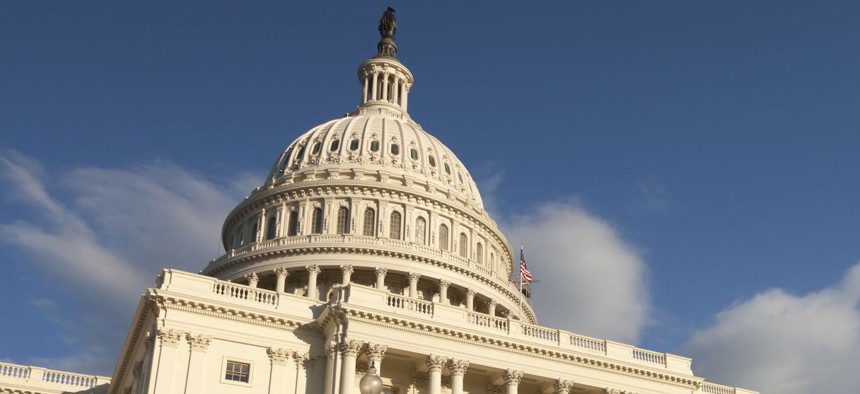In Effort to Protect the Muni Bond Tax Exemption, ‘It’s a Full Court Press’

The U.S. Capitol Shutterstock
Columbia, S.C., Mayor Stephen Benjamin is helping lead a push by city halls to defend the tax break. “We’re going to speak to every member of Congress.”
WASHINGTON — Determined to protect a federal tax exemption on municipal bond interest, which is thought to lower borrowing costs for state and local governments, mayors are preparing for an aggressive lobbying effort on Capitol Hill.
“We’re going to speak to every member of Congress,” Columbia, South Carolina, Mayor Stephen Benjamin told Route Fifty during an interview at the U.S. Conference of Mayors winter meeting, which is taking place this week in the nation’s capital. “It’s a full court press.”
Benjamin is spearheading the Conference of Mayors’ push to defend the tax break. He did not identify specific lawmakers who would be key targets of lobbying by the group. But he did say: “Obviously, we’re going to spend a great deal of time at Ways and Means.” The Committee on Ways and Means is the chief tax-writing panel in the U.S. House of Representatives.
Those who support the federal income tax break for interest earned on municipal, or “muni,” bonds worry that it could get capped or eliminated as part of broader tax reform efforts.
“There are so many different interest groups and as we engage in full-fledged tax reform, so many folks are going to be working hard to make sure that their ox is not gored,” Benjamin said.
“We want to make sure that whatever process the Congress goes through, that this issue remains front and center,” he added.
According to Benjamin and other mayors, President-elect Donald Trump offered his blessing for the muni bond tax exemption during a meeting at Trump Tower in New York last month. Questioned about Trump’s specific remarks when he was asked in the meeting if he would be supportive of the tax exemption, Benjamin explained that, “the president-elect said ‘yes’.”
“He was clear,” the mayor added later. “I feel good about it.”
The size of the municipal bond market was about $3.8 trillion in the third quarter of last year.
States and localities commonly issue the bonds to pay for infrastructure like schools, waterworks, and roads.
In November, the National Association of Counties noted that a blueprint for tax reform unveiled last year by House Republicans, did not include specific policy recommendations on how the municipal bond exemption would be treated.
Backers of the exemption commonly argue that it keeps interest rates down for state and local governments, making it easier for them to borrow for infrastructure projects. Critics say the exemption costs the U.S. government money in lost tax revenue, while benefiting investors.
U.S. Treasury Department figures rank the exemption 15th on a list of federal income tax breaks and show it will put an estimated dent in federal revenues of about $30 billion in 2017.
The exemption dates back to the Revenue Act of 1913. Over the years, proposals to curtail or end the tax expenditure have failed to stick.
Some question whether the exemption is the best policy tool for the federal government to use for subsidizing state and local infrastructure spending.
In a Tax Foundation brief written last year, analyst Scott Greenberg makes a case that: “The provision is designed poorly” and that “the subsidy is inefficient, as only a portion of every dollar forgone by the federal government ends up in the hands of state and local governments.”
Details that have emerged so far about Trump’s proposals indicate that he may look toward tax-credit programs, and private sector investment to raise money for infrastructure upgrades.
Benjamin said he’s open to those sorts of options, but as complements to the muni bond tax exemption, which he referred to as “the original public private partnership.”
Bill Lucia is a Senior Reporter at Government Executive’s Route Fifty and is based in Washington, D.C.
NEXT STORY: The Great Texas Pension Fix






